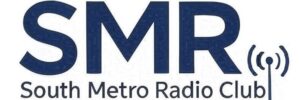Do you repeat the other persons callsign? Why?
There's no legal requirement of any kind to repeat back the call sign of the person you are talking to. The only call sign requirement is YOUR own at least every 10 minutes, and at the end of a communication, but doing so frequently seems to be a deeply ingrained best practice for many people.
In over 40-years of playing radio, I will repeat back call signs for clarity on HF and establishing a contact, but once that is done, I almost NEVER repeat the other parties call sign. I also never ever repeat back the call sign of the guys I talk to all the time, yet many people do it constantly, which I find weird.
There are a number of reasons to repeat back a call sign on HF. Here are a few reasons people give:
1. Clarity and Confirmation (The Primary Reason)
On the air, especially using single-sideband (SSB) voice or any mode with marginal conditions, audio can be distorted, clipped, or buried in static. Repeating the other station's call sign is the equivalent of saying, "Just to be absolutely clear, I am talking to [Call Sign]." It confirms for both operators, and for anyone listening, that the contact is being logged correctly. A mis-copied call sign is a worthless contact. It's a simple and highly effective error-checking mechanism.
2. A Sign of Respect and Attention
In ham radio culture, a person's call sign is their unique identity. It's how they are known across the globe. Repeating it shows that you are paying close attention and that you respect the other operator enough to get their identifier correct. It's the radio equivalent of using someone's name in a conversation to build rapport.
3. Managing Congestion and "Doubling"
Popular frequencies, especially during contests or nets, can become chaotic with many stations trying to talk at once. By clearly stating who you are calling and who you are, you help prevent "doubling"—where two stations transmit simultaneously, making neither intelligible. A common exchange is:
* Station 1: "Whiskey Alpha One Bravo Charlie, this is Victor Echo Seven X-Ray Yankee."
* Station 2: "Victor Echo Seven X-Ray Yankee, Whiskey Alpha One Bravo Charlie, thanks for the call..."
This structure makes is logical and crystal clear who is initiating the contact and who is responding, keeping order on the frequency.
4. Habit and Ritual
For many operators, especially those who are active in contests where speed and accuracy are paramount, the pattern of "their call, my call" becomes a deeply ingrained verbal habit. It structures the conversation, prevents dead air while thinking, and ensures the ritual of proper identification becomes second nature and unconscious muscle memory for operators. It’s the natural rhythm of a radio conversation, even when the strict necessity for error-checking is gone. It feels “wrong” to veteran hams to have a long exchange without this structure.
In short, it's not about fulfilling a regulatory minimum. It's about accuracy, respect, and operating practice in an environment where a simple misunderstanding can render a contact invalid. It’s the glue that holds a clear and polite radio conversation together.
But again, for new contacts, this all makes sense. But for your little group of buddies who all know each other, repeating the others persons call sign to me seems to be a big head scratcher.
What do YOU do?
73 de Joe, N0YJJ / WRPU609
Amateur Radio - ID every 10 minutes.
If I'm calling for someone, I will give Their FCC Call Sign, followed by my FCC Call Sign.
Once contact is established with the other person, I never say their call sign again, just my own
.
General Mobile Radio Service (GMRS) - ID every 15 minutes.
If I'm calling for someone, I will My Unit Number, followed by Their Unit Number.
I My FCC Call Sign every 15 minutes, or when the conversation has finished.
Example: Me> 6971 to Them> 6973. After contact is established, I only say my GMRS Call Sign once every 15 minutes, or when finished with the conversation.
.
It's interesting how Amateur Radio and the General Mobile Radio Service (GMRS), are completely different in many ways.
Dan/6971

